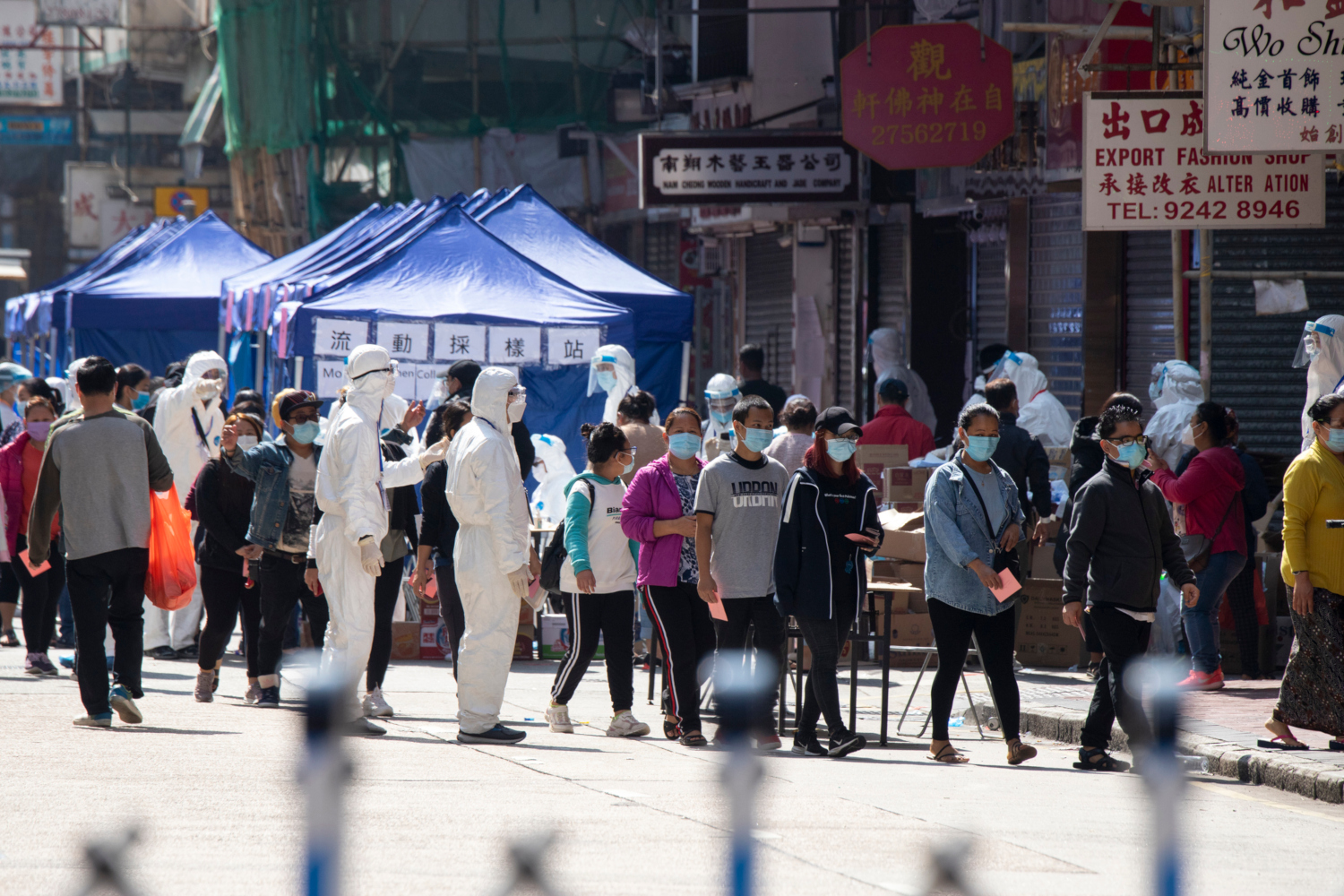China: Zero-Covid policy is taking a heavy toll on the economy

Event
China’s zero-Covid policy is plunging economic growth further down as several large cities are in lockdown, leading to severe disruptions to the manufacturing industry and supply chains. Despite its heavy economic costs, Xi Jinping confirmed that he would pursue this strategy in the coming months. In mid-April, the IMF forecast GDP growth to fall significantly, from 8.1% in 2021 to 4.4% this year (i.e. under the 5.5% government’s target), before rebounding to 5% thereafter.
Impact
Since March, China has been experiencing its sharpest surge in Covid-19 infections, well above the numbers recorded in Wuhan when the pandemic broke out in early 2020. This peak is caused by the more contagious Omicron variant, which is hitting larger economic areas and cities such as Shanghai, the country’s first financial centre and world’s largest port. Beijing remains very cautious due to its under-developed hospitals and the insufficient vaccination rate among elderly people. As political stakes are too high to change direction, the focus is now on accelerating the vaccination of the most vulnerable groups, mass testing and local lockdowns.

Indeed, next autumn, the 20th National Congress is expected to extend Xi Jinping’s presidential and party leader’s mandate, beyond two terms, for the first time since Mao. Therefore, his credibility is at stake. Showing his capacity to make the right choices and control the pandemic, by limiting the number of deaths – which is extremely low compared to most countries – while keeping domestic stability, will remain his number one priority this year whatever the economic costs and despite criticism about the reported food shortages and the severity of the restrictions in Shanghai. The city of Beijing is also hit, with several districts already in lockdown. As China’s political centre, it will be a touchy case to deal with. Nationwide, more than 180 million people would be in total or partial lockdown. This rising political challenge is happening in a context of real estate turmoil and high energy and food prices, particularly since the start of the war in Ukraine. As the world’s biggest fuel importer (70% of its oil and more than 40% of its gas) and a large buyer of food from all over the world, China is indeed indirectly very exposed to the higher oil and commodity prices driven by the Russian invasion of Ukraine. Main economic and social indicators are now darkening. Inflation is rising – albeit still at a low 1.5% in March – and the RMB is on a downward trend (-5% against the US dollar in 2022 as on 6 May), thereby ending the positive trajectory since mid-2020. Although this reflects China’s current economic slowdown, this trend also results from rising US interest rates and the general strengthening of the US dollar.

In addition, lockdowns have a broad detrimental economic impact: industrial production is growing modestly whereas the services sector and retail sales (highlighting consumer confidence) are going down. The social situation is also deteriorating with unemployment on the rise (5.8% in March compared to less than 5% in October 2021 and the highest since May 2020). Moreover, property sales are continuing to decline. Exports were the only bright spot until April, when data showed a low growth due to weakening EU and US demand and supply chains disruptions (slightly mitigated by the government’s decision to leave ports operational as much as possible). Those factors are expected to persist for some time and could therefore continue to harm exports in the short term. No overall economic improvement is expected before at least the third quarter. Meanwhile, in order to support the economy, the government will provide stimuli via an expansionary fiscal policy, accelerated infrastructure investments and monetary loosening. This year will be very challenging for China, not only on the socio-economic side, with a second economic crisis since 2020, but also for the Communist Party, whose legitimacy rests on delivering stability and prosperity. Therefore, good policy-making will again be crucial in the light of the zero-Covid strategy – difficult and costly to implement with very contagious variants – and the property market’s high debt reliance. The outlook for the rest of the year is uncertain due to domestic factors (the duration of the restrictions and even a potential new wave of Covid-19), but also due to external factors such as the developments around the war in Ukraine. Credendo does not forecast any changes in its ratings in the coming months.
Analyst: Raphaël Cecchi – r.cecchi@credendo.com